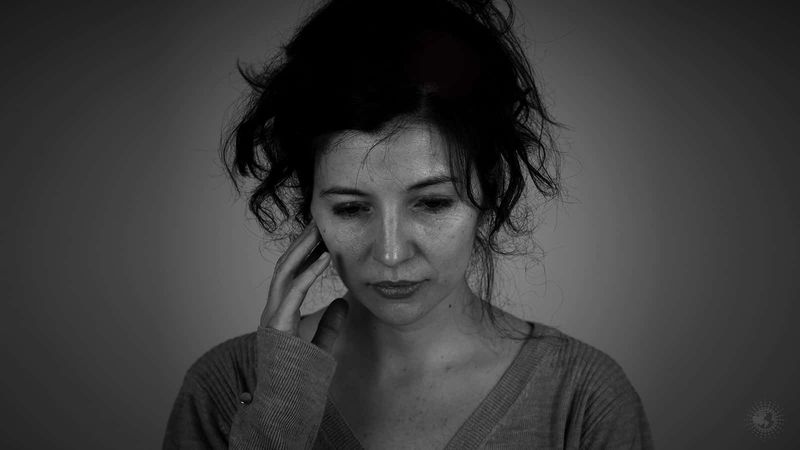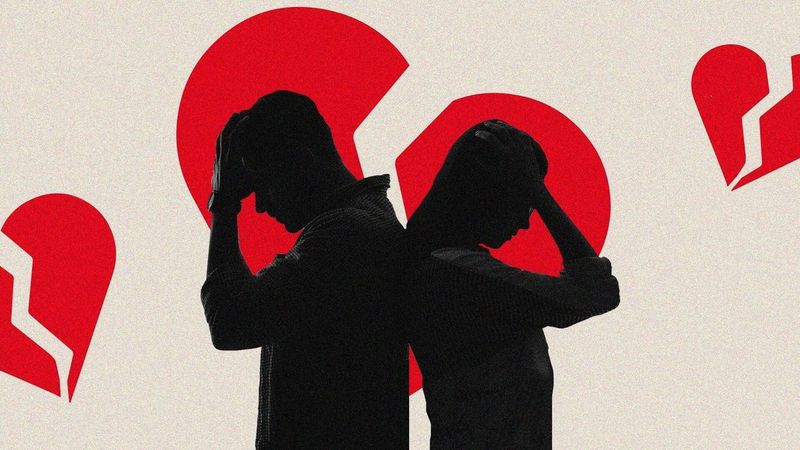17 Common Behaviours Of People Who Don’t Forgive Easily
Forgiveness is a complex emotional process that not everyone navigates with ease. Some individuals struggle with letting go of past grievances, resulting in behaviors that reveal their difficulty in forgiving.
This blog post explores 17 common behaviors exhibited by people who find it hard to forgive. Understanding these behaviors can lead to greater empathy and self-awareness, enabling personal growth and improved relationships.
1. Holding grudges long after the apology

Holding onto a grudge can feel like carrying a heavy burden. This behavior often stems from a deep-seated belief that forgiveness equates to condoning the wrong. Her mind replays the incident repeatedly, adding layers to the initial hurt.
Over time, this can become a defining part of her identity. Although she may not express it openly, her reluctance to forgive keeps old wounds fresh. This can lead to isolation, as distancing herself from potential hurt seems safer than risking another betrayal. The grudge becomes a shield, yet it also imprisons her in past pain.
2. Bringing up old mistakes during arguments

In the heat of an argument, some can’t resist resurrecting old mistakes. This behavior can be a defense mechanism, a way to divert attention from current issues or to gain the upper hand. However, it often leads to a cycle of resentment and unresolved conflict.
Over time, the relationship may become a battlefield of past grievances rather than a space for healing. Each argument adds to the emotional distance, and trust erodes. The continual recycling of past mistakes makes moving forward nearly impossible, trapping both parties in a loop of negativity.
3. Avoiding people who’ve wronged them entirely

Some choose to avoid those who’ve wronged them entirely, as if erasing the person can erase the pain. This avoidance may provide a temporary sense of peace, but it also limits social interactions and growth.
By sidestepping confrontation, the individual misses opportunities for resolution and understanding. The environment becomes a minefield of potential triggers, each avoidance reinforcing the inability to forgive. Isolation becomes a coping mechanism, yet it brings loneliness. The cycle of avoidance only deepens the emotional scars, making forgiveness seem unreachable.
4. Overanalyzing every slight or betrayal

The habit of overanalyzing can turn small slights into colossal betrayals. Her mind dissects every interaction, searching for hidden meanings or intentions. This behavior ties directly to trust issues, where even minor incidents are magnified.
She might replay conversations in her mind, questioning motives and sincerity. Often, this analysis leads to conclusions that may not reflect reality, causing unnecessary emotional turmoil. Instead of allowing time to heal, the individual becomes ensnared in a web of doubt and suspicion. The constant dissection of events prevents the natural process of forgiveness.
5. Expecting others to read their mind about pain

Some individuals expect others to instinctively know the depth of their pain. This behavior often arises from a lack of communication skills or fear of vulnerability. Assuming others should understand without explanation can lead to feelings of being misunderstood and isolated.
This expectation puts an unfair burden on relationships, creating misunderstandings and tension. The teenager may believe that vocalizing their hurt would only make it more real. However, without open dialogue, the path to forgiveness remains obstructed. The silence becomes a barrier, hindering healing and reconciliation.
6. Feeling proud of “never forgetting”

Carrying an attitude of “never forgetting” can become a badge of honor for some. This pride in memory serves as a self-defense mechanism, a way to protect against future hurts. However, it also means holding onto pain as proof of resilience.
By keeping these memories alive, the individual may feel empowered yet trapped in bitterness. The refusal to forget often blocks the path to forgiveness, as the past continually overshadows the present. While the memory of wrongs can serve as lessons, clinging too tightly can prevent emotional freedom and growth.
7. Retelling the hurt to justify staying angry

Retelling stories of past wounds can become a way to justify lingering anger. This behavior often seeks validation, a way to keep the anger alive and justified. Each retelling solidifies the narrative, making it harder to view the event from a different perspective.
By reliving the hurt, the individual maintains a connection to the pain, often at the expense of healing. The anger provides a sense of identity, a shield against vulnerability. Yet, this cycle of storytelling keeps the wound fresh, hindering the natural process of forgiveness and closure.
8. Assuming apologies aren’t genuine

Doubt in the sincerity of apologies can block the path to reconciliation. This behavior often emerges from past experiences where apologies were insincere or manipulative. The individual may struggle to accept that change is possible, viewing apologies as mere words.
This skepticism can prevent the rebuilding of trust, as every apology is met with suspicion. Without the willingness to believe in the potential for change, the cycle of hurt continues. This constant doubt can isolate the individual from genuine efforts at mending relationships and moving forward.
9. Distrusting even after small issues

For some, distrust becomes a reflex, even in minor situations. This behavior often stems from past betrayals, where trust was broken in significant ways. The individual might struggle to differentiate between major and minor transgressions, viewing all through the same lens of suspicion.
This constant vigilance can create a barrier to meaningful connections, as trust is withheld indiscriminately. Over time, this distrust can become a self-fulfilling prophecy, as others sense the lack of faith and withdraw. The inability to forgive even small slights ensures a cycle of isolation and emotional guardedness.
10. Preferring distance over reconciliation

Some find comfort in distance rather than facing reconciliation. This choice often reflects a fear of vulnerability and disappointment. By choosing distance, the individual shields themselves from potential hurt but also from healing and connection.
The allure of solitude offers a respite from conflict, but it also means missing the warmth of relationships. This preference can stem from past experiences where reconciliation seemed impossible or was met with further pain. The distance becomes a protective barrier, yet it also keeps forgiveness and emotional closeness at bay.
11. Reliving the hurt mentally on repeat

The mental replay of past hurts can become an inescapable loop for some. This behavior often stems from unresolved emotions, where the mind clings to old wounds as a way of understanding them. Each replay adds another layer to the pain, making it feel ever-present.
This cycle can prevent healing, as the individual remains anchored in past grievances instead of embracing the present. By continually focusing on the hurt, the person inadvertently prevents the possibility of forgiveness and emotional growth.
12. Comparing everyone to the one who hurt them

Comparison with those who caused past pain can color new relationships. This behavior often emerges from a fear of repeating past mistakes or betrayals. By comparing new acquaintances to those who hurt them, the individual erects emotional barriers.
Each new interaction becomes a test of loyalty and trust, viewed through the lens of past experiences. This comparison can taint relationships, as the person struggles to see others for who they truly are. The continual measuring of others against past wrongdoers hinders authentic connections and the process of forgiveness.
13. Seeing forgiveness as a sign of weakness

For some, forgiveness is equated with weakness. This perception often stems from a desire to protect oneself from further harm. By viewing forgiveness as a concession, the individual believes they are maintaining power and control.
However, this mindset can also become a barrier to healing, as it prevents the release of grudges and pain. The refusal to forgive often results in emotional stagnation, where growth is stifled by the weight of past grievances. Embracing forgiveness requires vulnerability, an act of strength rather than weakness.
14. Expecting perfect behavior before letting go

The demand for perfection can impede the path to forgiveness. This behavior often arises from high expectations and past disappointments. The individual may feel that only flawless behavior warrants letting go of past grievances.
However, this expectation sets an unattainable standard, as human imperfection is inevitable. The insistence on perfection can prevent reconciliation, leaving relationships strained and unresolved. By waiting for an ideal that may never be met, the process of forgiveness is stalled. Acceptance of human flaws is key to moving forward and fostering understanding.
15. Building emotional walls to avoid future hurt

Emotional walls become fortresses against potential pain for some. This behavior is born out of a desire to protect the heart from future wounds. By constructing these walls, the individual creates a sense of safety but also isolation.
The barriers prevent genuine relationships, as vulnerability is perceived as a risk too great to take. Over time, these walls can become self-imposed prisons, limiting personal growth and connections. While they offer protection, they also hinder the healing process, making forgiveness and emotional intimacy difficult to achieve.
16. Using sarcasm or passive-aggressiveness instead of honesty

Sarcasm and passive-aggressiveness often replace honesty for those who struggle to forgive. This behavior serves as a shield, protecting the individual from the vulnerability of open dialogue. By using indirect communication, they avoid confronting their true emotions or the root of their grievances.
However, this approach often leads to misunderstandings and further conflict. The lack of directness prevents the resolution of issues, as the real feelings remain hidden. Embracing honesty requires courage, but it opens the door to healing and forgiveness, breaking the cycle of resentment.
17. Believing revenge feels better than closure

For some, the allure of revenge outweighs the peace of closure. This belief often stems from a desire for control and retribution. By seeking revenge, the individual feels a temporary sense of power and satisfaction.
However, this path rarely leads to true healing, as the focus remains on the past rather than moving forward. The pursuit of vengeance can consume emotional energy, leaving little room for growth or reconciliation. Forgiveness and closure require letting go, a step that offers lasting peace rather than the fleeting satisfaction of revenge.







